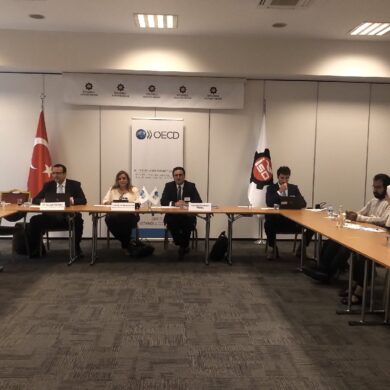* Where was the beginning in the world of business and finance? The most prominent workstations and economic dealings throughout your career?I started my career in the early nineties when I was a partner in a number of restaurants, before moving abroad and working with major companies in the field of food and beverage. After my return to Beirut, I established a chain of Arab and foreign restaurants in Beirut Souks and other areas several, and despite the difficulties and the security, social and economic crises, we did not close any of our restaurants and we faced challenges as businessmen responsible for saving this important political sector in Lebanon..
* To what extent are you socially and economically integrated into your proposals with the person of your late father, the Beirut fighter Fouad Shabaklo? Where are they similar with the difference in time and place and the change of conditions?
my father left me with a sense of nationalism and Arab affiliation. As one of the pillars of the National Front, the late Fouad Shabaklo carried in his heart the national and patriotic concern and struggled for Lebanon to be the center of the Arab project in defense of Palestine, the central issue that lives in the conscience of every free Arab. After the explosion of Beirut and the great collapse that hit the homeland, I rushed in the father’s footsteps to complete his march and return Lebanon to the map. There is no peace or stability in the region in light of Lebanon’s weakness and vulnerability on the part of the Philistine forces striving to erase Lebanon’s pluralistic and pan-Arab identity.
* Your personal account has a long history of economic and social achievements and contributions… Tell us about them… Your assessment of the current economic situation? And ways to solve the crisis that the Lebanese suffer from?
I do not carry a magic wand that deludes voters into a solution. But the beginning of any solution begins with changing this corrupt system that wreaked havoc and destruction in the country. Hence, I place myself on the “Beirut Needs a Heart” list, as an alternative to this system, which we have tested for decades and only achieved more disasters and collapses from it.
* Does Karim Shabaklo consider that the economic problem lies in providing a better economic climate and more job opportunities for young people, so this would be the natural way out of our crises?
To provide such an atmosphere, it is necessary first to restore confidence in Lebanon. The confidence of the international community, which now knows well the depth of corruption in the Lebanese system, through international reports that rank us among the largest countries in their failure, and the confidence of the Lebanese in their institutions that plundered their money and did not protect them and hold the lords of corruption and their cronies accountable in the state.
* How can our country benefit from your extensive experience in the world of business, industry, and investment? Al-Jameel in Beirut’s list needs a heart that its candidates specialize in several fields. Based on my experience in the world of restaurants and tourism, I see myself as a legislator and defender of this sector and a representative of tens of thousands of workers in it.
* The way to attract foreign investment in the future?
Investments need stability first, and an impartial judiciary, secondly, that protects the investor from the contacts of corrupt leaders. From here, the reform process begins to attract investments, which I see today awaiting the positive change in the election of an alternative that restores confidence and not the extension of this class that buried all Lebanon’s opportunities for advancement.
* Do you think that an economic and financial solution must pass through the gate of control and legislation, as a sign of the desired financial and economic change?
Naturally, legislation, oversight, and accountability are the main pathways for any change in the country. The law of the jungle that we live in today, its solution lies in bringing a clean parliament that produces laws and does not bury them in forgotten committees.
* In your opinion, what is the way to restructure the failed sectors? What about activating the partnership between the public and private sectors in Lebanon?
This partnership is essential. In failed states, the successful private sector is the savior, and I am sure that there are many opportunities for Lebanon in this field, provided that transparency is secured for this partnership, and not that we become another opportunity to plunder the state treasury, as is happening today with this political class and its brokers.


